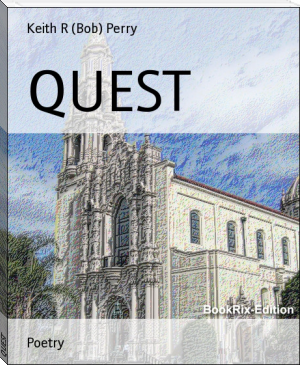The Ship of Fools, Volume 1-2 - Sebastian Brant (thriller books to read TXT) 📗

- Author: Sebastian Brant
- Performer: -
Book online «The Ship of Fools, Volume 1-2 - Sebastian Brant (thriller books to read TXT) 📗». Author Sebastian Brant
That in eche thynge ought to be had measure
Wyne ne ale hurteth no maner creature
But sharpeth the wyt if it be take in kynde
But if it be nat, than I the ensure
It dulleth the brayne, blyndynge the wyt and mynde
Rede all bokes and thou shalt neuer fynde
That dronkennes and wysdome may togyther be
For where is dronkennes, there madnes is by kynde
Gydynge the hauer to all enormyte
And where as is madnes thou shalt neuer se
Reason ne wysdome take theyr abydynge
In one instant, wherfore lerne this of me
That dronkennes is mortell enmy to cunnynge.
*
Of ryches vnprofytable.
[Illustration: Yet fynde I folys of another sorte
Whiche gather and kepe excessyfe ryches
With it denyeng their neyghboures to conforte
Whiche for nede lyueth in payne and wretchydnes
Suche one by fortune may fall into distres
And in lyke wyse after come to mysery
And begge of other, whiche shall to hym deny.]
It is great foly, and a desyre in vayne
To loue and worshyp ryches to feruently
And so great laboure to take in care and payne
Fals treasoure to encrease and multyply
But yet no wonder is it sertaynly
Syth he that is ryche hath gretter reuerence
Than he that hath sadnes wysdom and scyence
The ryche mannes rewardes stande in best degre
But godly maners we haue set clene asyde
Fewe loueth vertue, but fewer pouertye.
Fals couetyse his braunches spreddeth wyde
Ouer all the worlde, that pety can nat byde
Among vs wretches banysshed is kyndnes
Thus lyeth the pore in wo and wretchydnes
Without conforte and without auctoryte
But he only is nowe reputed wyse
Whiche hath ryches in great store and plente.
Suche shall be made a sergeant or Justyce
And in the Court reputed of moste pryse
He shall be callyd to counseyll in the lawe
Though that his brayne be skarsly worth a strawe
He shall be Mayre baylyfe or constable
And he onely promotyd to honoure
His maners onely reputed ar laudable
His dedys praysyd as grettest of valoure
Men laboure and seke to fall in his fauoure
He shall haue loue, echone to hym shall sue
For his ryches, but nought for his vertue
Se what rewardes ar gyuen to ryches
Without regarde had to mannys condycyon
A strawe for cunnynge wysdome and holynes
Of ryches is the first and chefe questyon
What rentes what londes howe great possessyon
What stuffe of housholde what store of grotz and pens
And after his gode his wordes hath credence.
His wordes ar trouth men gyue to them credence
Thoughe they be falsly fayned and sotell
But to the pore none wyll gyue aduertence
Though that his wordes be true as the gospell
Ye let hym swere by heuyn and by hell
By god and his sayntes and all that god made
Yet nought they beleue that of hym is sayde
They say that the pore men doth god dispyse
Thouhe they nought swere but trouth and veryte
And that god punyssheth them in suche wyse
For so dispysynge of his hye maiestye
Kepynge them for their synnes in pouerte
And theyr ryche exaltyth by his power and grace
To suche ryches, worldly pleasour and solace
The ryche ar rewarded with gyftis of dyuerse sorte
With Capons and Conyes delycious of sent
But the pore caytyf abydeth without confort
Though he moste nede haue: none doth hym present
The fat pygge is baast, the lene cony is brent
He that nought hathe, shall so alway byde pore
But he that ouer moche hath, yet shall haue more
The wolfe etis the shepe, the great fysshe the small
The hare with the houndes vexed ar and frayde
He that hath halfe nedes wyll haue all
The ryche mannes pleasour can nat be denayde
Be the pore wroth, or be he well apayde
Fere causeth hym sende vnto the ryches hous
His mete from his owne mouth, if it be delycious
And yet is this ryche caytyf nat content
Though he haue all yet wolde he haue more.
And though this gode can neuer of hym be spent
With nought he departyth to hym that is pore
Though he with nede harde vexed were and sore.
O cursyd hunger o mad mynde and delyte.
To laboure for that whiche neuer shall do profyte
Say couetous caytyfe what doth it the auayle
For to haue all and yet, nat to be content
Thou takest nat this sore laboure and trauayle
To thy pleasoure but to thy great turment
But loke therof what foloweth consequent
Whan thou art dede and past this wretchyd lyfe
Thou leuyst behynde brawlynge debate and stryfe
To many one ryches is moche necessary
Whiche can it order right as it ought to be
But vnto other is it vtterly contrary
Whiche therwith disdayneth to socoure pouerte.
Nor them relefe in theyr aduersyte
Suche shall our lorde sore punysshe fynally
And his petycion rightwysly deny
BARKLAY TO THE FOLYS.
Ye great estatis and men of dignyte
To whome god in this lyfe hath sent ryches
Haue ye compassion, on paynfull pouertye
And them conforte in theyr carefull wretchydnes
God hym loueth and shall rewarde doutles
Whiche to the nedy for hym is charitable
With heuenly ioy, whiche treasour is endeles
So shall thy riches to the be profytable.
*
Of hym that togyder wyll serue
two maysters.
[Illustration: A fole he is and voyde of reason
Whiche with one hounde tendyth to take
Two harys in one instant and season
Rightso is he that wolde vndertake
Hym to two lordes a seruaunt to make
For whether, that he be lefe or lothe
The one he shall displease, or els bothe.]
A fole also he is withouten doute
And in his porpose sothly blyndyd sore
Whiche doth entende labour or go aboute
To serue god, and also his wretchyd store
Of worldly ryches: for as I sayde before
He that togyder wyll two maysters serue
Shall one displease and nat his loue deserue
For he that with one hownde wol take also
Two harys togyther in one instant
For the moste parte doth the both two forgo
And if he one haue: harde it is and skant
And that blynde fole mad and ignorant
That draweth thre boltis atons in one bowe
At one marke shall shote to hye or to lowe
Or els to wyde, and shortly for to say
With one or none of them he strykis the marke:
And he that taketh vpon hym nyght or day
Laboures dyuers to chargeable of warke.
Or dyuerse offycis: suche wander in the darke
For it is harde to do well as he ought
To hym that on dyuerse thynges hath his thought
With great thoughtes he troubleth sore his brayne
His mynde vnstable, his wyt alway wandrynge:
Nowe here nowe there his body labours in payne
And in no place of stedfast abydynge.
Nowe workynge now musynge now renynge now rydynge
Now on see nowe on londe, than to se agayne
Somtyme to Fraunce, and nowe to Flaunders or Spayne
Thus is it paynfull and no thynge profytable
On many labours a man to set his mynde
For nouther his wyt nor body can be stable
Whiche wyll his body to dyuers chargis bynde
Whyle one goth forwarde the other bydes behynde
Therfore I the counseyll for thyne owne behoue
Let go this worlde and serue thy lorde aboue
He that his mynde settyth god truly to serue
And his sayntes: this worlde settynge at nought
Shall for rewarde euerlastynge ioy deserue
But in this worlde, he that settyth his thought
All men to please, and in fauour to be brought
Must lout and lurke, flater, lawde, and lye:
And cloke a knauys counseyll, though it fals be
If any do hym wronge or iniury
He must it suffer and pacyently endure
A dowble tunge with wordes lyke hony
And of his offycis if he wyll be sure
He must be sober and colde of his langage
More to a knaue, than to one of hye lynage
Oft must he stoupe his bonet in his honde
His maysters backe he must oft shrape and clawe
His breste anoyntynge, his mynde to vnderstonde
But be it gode or bad therafter must he drawe
Without he can Jest he is nat worth a strawe.
But in the meane tyme beware that he none checke
For than layth malyce a mylstone in his necke
He that in court wyll loue and fauour haue
A fole must hym fayne, if he were none afore
And be as felowe to euery boy and knaue
And to please his lorde he must styll laboure sore
His manyfolde charge maketh hym coueyt more
That he had leuer serue a man in myserye
Than serue his maker in tranquylyte
But yet whan he hath done his dylygence
His lorde to serue as I before haue sayde
For one small faute or neglygent offence
Suche a displeasoure agaynst hym may be layde
That out is he cast bare and vnpuruayde.
Whether he be gentyll, yeman grome or page
Thus worldly seruyce is no sure herytage
Wherfore I may proue by these examples playne
That it is better more godly and plesant
To leue this mondayne casualte and payne
And to thy maker one god to be seruaunt
Whiche whyle thou lyuest shall nat let the want
That thou desyrest iustly, for thy syruyce
And than after gyue the, the ioyes of Paradyse.
BARKLAY TO THE FOLYS.
Alas man aryse out of Idolatry.
Worshyp nat thy ryches nor thy vayne treasoure
Ne this wretchyd worlde full of mysery.
But lawde thy maker and thy sauyour
With fere, mekenes, fayth, glory, and honoure
Let thy treasoure onely in his seruyce be
And here be content with symple behauoure
Hauynge in this lorde trust and felycyte
*
Of to moche spekynge or bablynge.
[Illustration: He that his tunge can temper and refrayne
And asswage the foly of hasty langage
Shall kepe his mynde from trowble, sadnes and payne
And fynde therby great ease and auauntage
Where as a hasty speker falleth in great domage
Peryll and losse, in lyke wyse as the pye
Betrays hir byrdes by hir chatrynge and crye.]
Ye blaberynge folys superflue of langage
Come to our shyp our ankers ar in wayde
By right and lawe ye may chalange a stage
To you of Barklay it shall nat be denayde
Howe be it the charge Pynson hathe on me layde
With many folys our Nauy not to charge.
Yet ye of dewty shall haue a sympyll barge
Of this sorte thousandes ar withouten fayle
That haue delyte in wordes voyde and vayne
On men nat fawty somtyme vsynge to rayle
On folysshe wordes settynge theyr herte and brayne
They often touche to theyr owne shame and payne
Suche thynges to whiche none wyll theyr mynde aply
(Saue suche folys) to theyr shame and enuy
Say besy fole art thou nat well worthy
To haue enuy, and that echone sholde the hate
Whan by thy wordes soundynge to great foly
Thou sore labrest to engender debate
Some renneth fast thynkynge to come to late
To gyue his counsell whan he seeth men in doute
And lyghtly his folysshe bolt shall be shot out
Is it nat better for one his tunge to kepe
Where as he myght (perchaunce) with honestee
Than wordes to speke whiche make hym after wepe
For great losse folowynge wo and aduersyte
A worde ones spokyn reuoked can nat be
Therfore thy fynger lay





Comments (0)